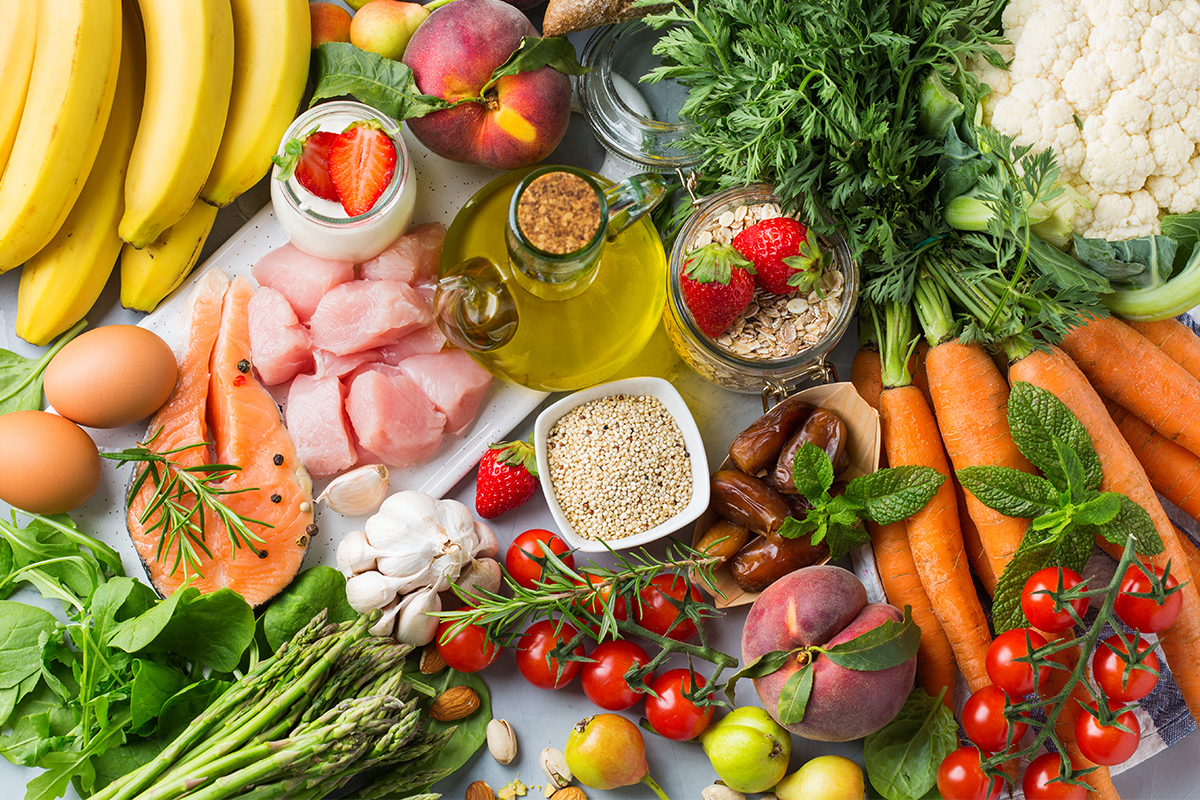Answer:
How wonderful! Why not follow a smart pre-conception diet now? Laying down a good nutritional foundation means that you’ll not only increase the likelihood of conceiving but also of a healthy first trimester – for you as well as the baby. Get hubby on board, too. ?
Many “conception diets” recommend that half your plate be from fruits and vegetables, a quarter from whole grains and a quarter lean protein, which agrees with USDA’s Choose MyPlate guidelines. If you’re trying to get pregnant, drinking reduced or whole fat milk is correlated with normal fertility, but not 1% or skim (non-fat). Consume healthy plant-based fats like avocado, nuts, olives and coconut oil in moderation. Limit refined sugar, red meat and foods containing trans-fat.
As many women don’t know they are carrying a baby until several weeks into pregnancy, taking a prenatal vitamin with 100% RDI of folic acid (400 µg folate equivalent) and iron (18 mg) is advisable. Many produce items (notably spinach, asparagus, Brussel sprouts) have the B-vitamin folate, necessary for early neural tube development. Dietary sources of the important blood mineral iron include meat, fortified cereals, beans, and dark green leafy vegetables.
During Pregnancy
During pregnancy, follow your obstetrician’s advice and that from established and trusted institutions such as The American College of Obstetricians and Gynecologists (ACOG), The Academy of Nutrition and Dietetics (AND), and The US Office on Women’s Health (OWH).
You’ll need extra fluids, nutrients and calories as your pregnancy progresses. In the first trimester, folate and other vitamins and minerals are crucial for proper neural tube development, so a good prenatal vitamin is key. Strictly avoid alcohol during this time.
The second trimester is when you start to expand blood volume and increase maternal stores while your baby grows rapidly from the size of a nut (3”, 1 oz.) to a football (12”, 1 lb.) while developing all of its organs and features. About 2 additional cups of fluids are needed per day. Adding around 300 extra calories from healthy foods with adequate calcium and iron will support this growth.
In the last trimester, your baby is filling out to full-term weight. This is when you are truly “eating for two, ” although in terms of energy, you really only need an additional 200 calories on top of your 2nd trimester needs.
Sources:
- Eagleson, H. (n.d.) The Fertility Diet: What to Eat When Trying to Get Pregnant. https://www.parents.com/getting-pregnant/fertility/what-to-eat-to-get-pregnant/ Accessed 1.10.2020
- Mayo Clinic Staff (2018, April 13) Prenatal Vitamins: Why They Matter; How to Choose https://www.mayoclinic.org/healthy-lifestyle/pregnancy-week-by-week/in-depth/prenatal-vitamins/art-20046945 Accessed 1.10.2020
– Debbie J., MS, RD




 Have a nutrition question? Our registered dietitian is ready to help!
Have a nutrition question? Our registered dietitian is ready to help!










